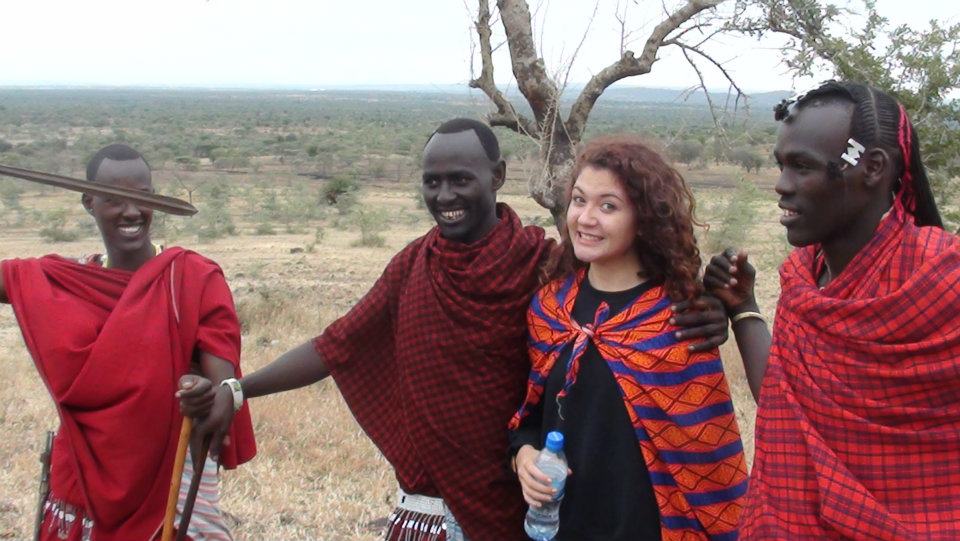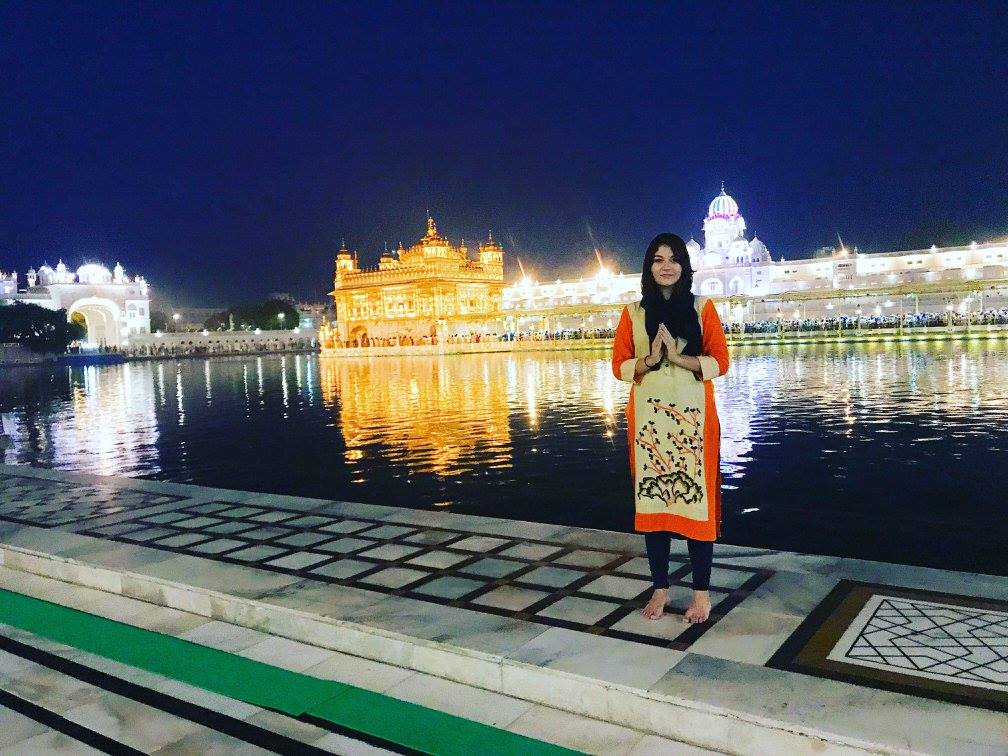Online Education Leads to Studying Abroad

College education doesn’t need to be defined by four walls and a weekly classroom setting, just ask Kristine Carlos. Carlos is a UCF student taking only online classes while studying cultural anthropology, and she has not once let her learning be confined to a desk or to a computer. Instead, she takes her education across the globe.
Carlos has already volunteered in Tanzania, Dharamshala and Amritsar, and recently was accepted by WorldTeach to volunteer this August in American Samoa. She’s also a semi-finalist for a Fullbright award to teach English in India.
“I always wanted to travel the world because I found it incredible how people lived so differently in other countries,” she said.
This desire to travel the world stemmed from documentaries about culture, history and travel Carlos watched and read as a child. She became interested in the field of anthropology when she was just 12 years old, but didn’t consider it as a career option until her teenage years.
“I knew that I loved learning about culture from an early age,” she said. “When I was exploring majors in high school, it was love at first sight with anthropology. I never knew that something I studied for fun was something I could pursue academically and as a career.”
When she entered UCF, Carlos knew the online program would be the best fit, since she worked full-time on top of her education.
“I think the online program makes for a very responsible student, ready to enter grad school or the workforce,” she said. “You must make an effort to do the readings, watch the lectures and email your professors when you need help. You learn a lot of self-discipline in this program.”
Carlos certainly has the drive and discipline needed for success in the online-education world. On top of being a full-time student, full-time employee and a world traveler, Carlos is also tackling the Honors in the Major program. She’s focusing on how crystal healing is still used today and explores the transformation process from its beginnings into a ‘new age’ practice.
“My thesis is about exploring the origins of crystal healing,” she said. “I delve into the mythical origins of crystal healing in English, Indian and Native American cultures.”
Carlos was inspired to choose this as her thesis topic after meeting a local author whose literary focus was on crystal healing.
“I was already interested in the topic, and he inspired me to pursue crystal healing as the basis of my thesis,” she said. “There are many new age books that explain how to heal with crystals, but it is very rare to find a book that explains the origins of the ritual. I decided then I wanted to take on this challenging topic.”
Her thesis chair is Ty Matejowsky, Ph.D., an Associate Professor of Cultural Anthropology. Carlos was first introduced to Matejowsky when she took his Magic, Ritual and Belief online class.
“I traveled to campus to meet him and ask him about his experiences as a cultural anthropologist and his studies about Eastern Africa,” Carlos said. “Dr. Matejowsky has been a wonderful source of guidance for me.”
Carlos graduates in May 2018, and hopes to teach English to speakers of other languages while she travels and experiences diverse cultures in a meaningful way. Eventually, she wants to get her master’s degree and potentially work toward a doctorate. Carlos also received a Fullbright Student Award to teach in Inida next year.
“I put a lot on my plate as a student because I wanted to get everything out of my program that I could,” she said. “You learn to put in what you want to get out. Despite being an online student, your anthropology education is not just through a computer.”

